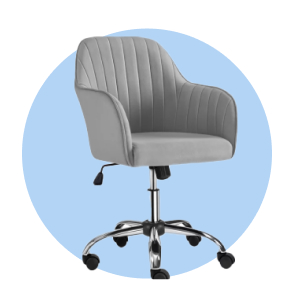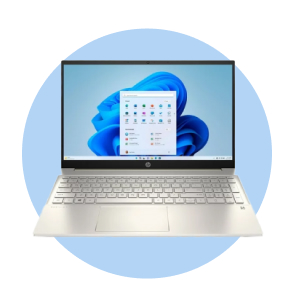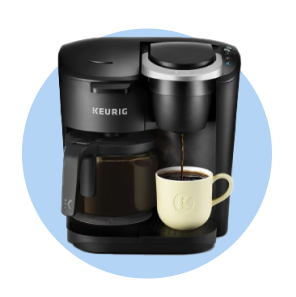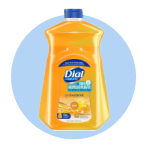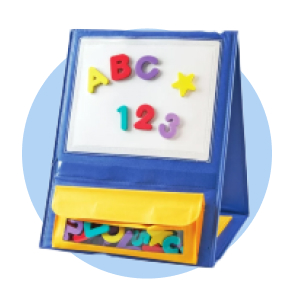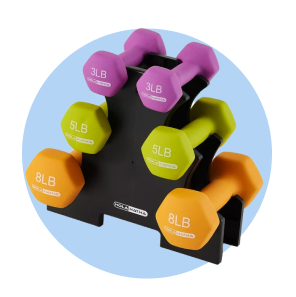
Business PCs: A Buyers’ Guide
With dozens of different manufacturers and thousands of different configurations, there’s a lot to think about when you’re shopping for the right business PC. By taking a desktop computer’s brand, hardware, operating system and price into account, you can purchase a system—or enough systems to fill an office—with confidence.
While business PCs vary considerably from model to model, the best ones do tend to have a few things in common. They come from trusted manufacturers, contain high-quality components and run on modern operating systems.
Bear in mind that this article focuses on desktop computers for business. If your company would benefit from buying laptop computers instead, read 5 Factors to Consider Before Investing in a Business Laptop.
How to choose the right business PC
Before you start researching the best business PC to buy, it’s important to remember just how broad the category can be. Technically, any computer that runs the applications your company needs can be a business PC, whether that’s a bare-bones notebook or a top-of-the line tower.
However, a machine that can browse the internet and do little else may be underpowered if you need to run specialized software. At the other end of the spectrum, gaming models can handle any business application with ease, but you’ll also be paying a lot of money for components you’ll never need.

Business purpose
The single most important question you can ask yourself while researching business PCs is, “What do I need this for?” Depending on what your company does, what software you need to run and what your workspace looks like, you may be able to narrow down your choices considerably.
For example: a company that sells handmade goods from a small storefront may need a computer just to exchange emails and order supplies. A space-saving mini PC with modest hardware specifications might suit its needs. On the other hand, a graphic design company that needs specialized software and lots of multimedia assets would benefit from a more powerful, full-size PC with lots of ports.
Performance
Whatever else you look for, you’ll want a business desktop PC with good performance. However, what “good performance” means varies from task to task, and from company to company. A low-end PC might offer perfectly good performance for email and web browsing, but struggle to keep up with database or bookkeeping software. In general, a business PC’s performance is good if it runs every program you need quickly and responsively.
Since it’s difficult to test business PCs under realistic conditions before you buy them, you can use hardware specifications to give you a rough idea of performance. The more powerful the hardware, the better performance you should expect from it. During your research, consider the following components:
- Central processing unit (CPU), or processor: A computer’s CPU controls the whole system, interpreting the instructions that you give it and carrying out the appropriate functions. In general, the more powerful the CPU, the faster the machine. Consult a CPU manufacturer’s website to learn which models might suit your business needs.
- Random access memory (RAM): RAM stores data temporarily, allowing the processor to access information more quickly and better balance multiple tasks. Having more RAM is always better, particularly for users who need to multitask. Still, anything beyond 32 GB may be overkill for your day-to-day business operations.
- Storage, or solid-state drive (SSD), or hard disk drive (HDD): Storage refers to the total amount of data your computer can hold. Business machines tend to start around 256 gigabytes (GB), but they can go up to 2 terabytes (TB) or beyond. If possible, go for an SSD, as they tend to be fast and reliable. Less expensive computers may use magnetic HDDs, but this technology is somewhat outdated.
- Graphics processing unit (GPU), or graphics card: Most business computers have integrated GPUs, which are less expensive and less powerful than discrete GPUs. Discrete GPUs are mostly a consideration for gaming machines, but you may need one if your company does a lot of graphic design, photo editing or animation work.
Reputable manufacturers will also provide information about a system’s internet capabilities, Bluetooth functionality, audio options and so forth. This information can be useful, but generally speaking, these features should work well on any modern business PC from a major brand.

Budget
As with most products, a desktop computer’s price is a function of its components, its functionality and its brand. Broadly speaking, the better a computer’s hardware, the more expensive it will be. However, some brands charge more than others, so simply spending a lot of money is not guaranteed to get you a high-end system. Similarly, an inexpensive computer may be worth considering if you’re confident it can run all the software you need.
There are no hard-and-fast rules when determining how much to budget for new PCs. Instead, consider what you need a system to do, how much you can comfortably spend on it and when you expect you’ll have to replace it. Also remember that high-end systems don’t necessarily last longer than mid-range ones, since a computer’s longevity is often a function of its operating system and its warranty.
Operating system
A computer’s operating system is one of the most important factors to consider during your research. The two most common operating systems by far are Microsoft Windows and Apple macOS, but it’s not uncommon to come across Google ChromeOS or certain Linux distributions in the business world.
Comparing the features of every operating system is beyond the scope of this piece, but each one offers different strengths and weaknesses. Your most important consideration should be whether a prospective OS can run every piece of software that your business needs. Any of these programs can handle basic productivity software and web browsers. Beyond that, you’ll have to look up specific programs and verify compatibility.
Remember that whatever OS you settle on, you’ll likely have to stick with it for the long haul. As you grow and scale your business, you’ll want to make sure that your new hardware and software remain compatible with the machines you already own. As such, you should choose an OS that both you and your staff are comfortable with, and one that’s available from the manufacturers you trust.

Brand
There are at least 10 major PC brands available in the United States, as well as dozens more boutique manufacturers. No matter how much time you allocate for research, it’s simply not possible to compare every single brand, much less every single different model and configuration.
Instead, start your research with general hardware and software specifications. You’ll probably see a few brands pop up again and again. Use search engines, review sites like Wirecutter or Tom’s Guide, user reviews and social media to research each brand’s reputation. If the machines work properly and satisfy consumer expectations, that’s a good sign. If they have trouble running common programs or break down frequently, another brand might be a better match.
Remember that every brand, regardless of overall quality, will ship a few defective units. As such, it’s also worth researching a manufacturer’s tech support policies and warranty coverage. Easily accessible tech support both online and by phone can be invaluable if something goes wrong. Similarly, warranties that last for years are more valuable than ones that last only a few months, especially if the coverage terms are broad and the manufacturer agrees to pay shipping costs.
Style
Depending on your budget, it may be worth looking into an all-in-one desktop rather than a traditional tower PC or mini PC. These versatile machines are essentially large monitors with computers built in, and they often come with keyboards and mice as well.
All-in-one desktops can save a lot of hassle, and they free up time that you’d otherwise have to spend researching and sourcing separate peripherals. On the other hand, they tend to be more expensive than standalone computers and monitors, with fewer hardware configurations available. An all-in-one may be worth considering if space is at a premium, but you might do just as well with a PC and a small monitor.
Find the best business PCs with Walmart Business
Whether you’re looking for a single business PC or want to outfit an entire office, Walmart Business can help. When you sign up for a free Walmart Business account, you’ll be able to buy items in bulk and access your order history for both in-store and online purchases. You can also share the account among multiple users and save your preferred payment options.
If you already have an account, then consider upgrading to a Walmart Business+ membership. With it, you’ll get free shipping on items from Walmart.com,1 and free delivery from nearby Walmart stores on orders over $35.2 You’ll also earn 2% back in Walmart Business Rewards on orders of $250 or more.3 Together, these benefits could save your company more than $500 per year.4
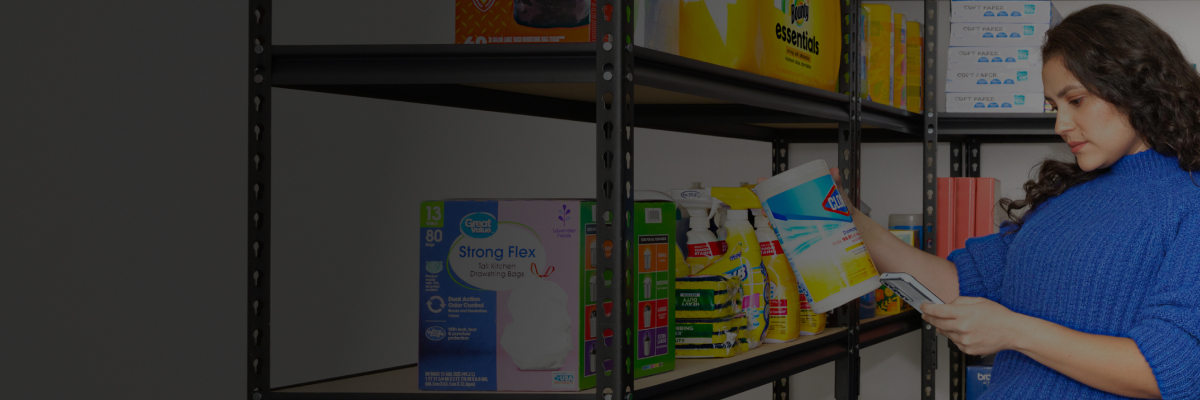

Limited-time offer
Unlock your special promo code
Stay informed on Walmart Business news & get $20 off a $100 purchase!1
1Minimum order of $100. Promo code can be used one time & may not be combined with other offers. Offer not transferable & void where prohibited by law. Customer responsible for all applicable taxes. Offer expires 12/31/2025 at 11:59pm PT. Further restrictions apply. See terms at checkout for details. Promo code offers available in limited quantities. While supplies last.
1 Excludes most Marketplace items, freight and certain location surcharges.
2 Restrictions apply.
3 Rewards can only be used toward future purchases on Walmart Business. Additional terms apply.
4 Savings based on 1 free $35+ delivery order vs. $9.95 fee and 1 free shipping order under $35 vs. $6.99 fee biweekly, plus 2% Walmart Business Rewards on monthly order >$250 (average value of $400).
Exciting news awaits
Hear firsthand about new products, features & promotions.
By clicking submit, you agree to receive emails about Walmart Business and acknowledge you have read and agreed to our Terms of use and Privacy Policy.



